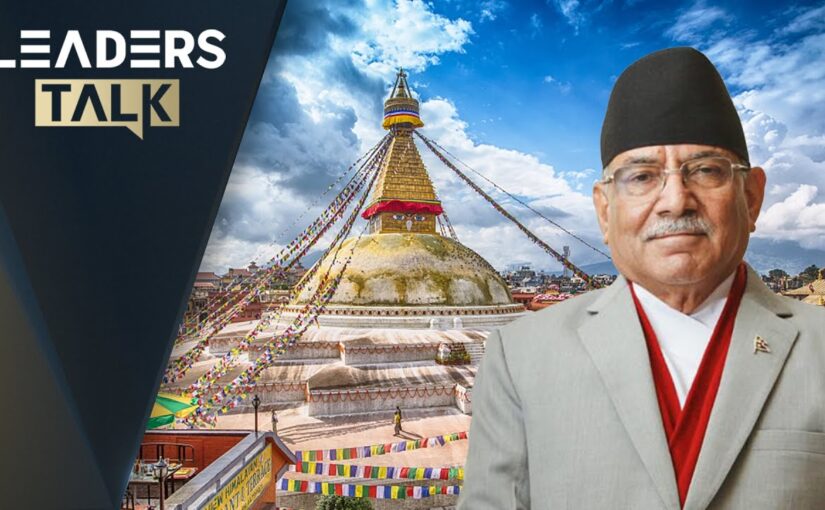In this episode of the CGTN series Leaders Talk, recorded on September 25, two days after the opening of the Asian Games in Hangzhou, Li Tongtong interviews Pushpa Kamal Dahal, the Prime Minister of Nepal, known as Prachanda.
Noting that Prachanda is now serving his third term as Prime Minister, Li notes that the first of his many visits to China was to attend the closing ceremony of the 2008 Beijing Olympics during his first term. Now, 15 years later, he is in China for the opening of the Asian Games, having moved up his speaking slot at the United Nations General Assembly session in New York to be present. Nepal set a record with more than 250 of its athletes competing in the games this time and Prachanda observes that the 2008 Olympics showcased China’s progress to the world. And now the Asian Games show that China has taken another leap forward.
Prachanda says that he has met President Xi Jinping five times and finds him a very sincere and visionary leader. Topics he had discussed with him this time included the common interests of the two countries, how to better facilitate China’s support and help to Nepal, for example in aviation, railway, road and transmission line connectivity, as well as climate change, poverty reduction and friendly relations between the two peoples.
The Nepalese Prime Minister, who is also the leader of the Communist Party of Nepal (Maoist Centre), says that the glorious history of the Communist Party of China (CPC), since its founding in 1921, has seen it amass a wealth of experience. As a result, it has achieved a great success in building a new model of socialism, namely socialism with Chinese characteristics. This has provided great encouragement to and made a positive impact on communist parties and people who want development and social justice around the world. They all want to learn from China’s experience.
The friendship between Nepal and China, Prachanda observes, has deep roots and one example of their special relations is that Nepal is the only country to have diplomatic representation in Xizang (Tibet), which Prachanda went on to visit as the last stop of his visit. Its consulate in Lhasa is one of five Nepali consulates in China, more than it has in any other country.
Whilst the number of people engaged in agricultural production in Nepal is gradually decreasing, Prachanda explains that his country is still primarily an agricultural one. So China’s experience and assistance in the agricultural field is very meaningful and important for Nepal. He always aim to study agricultural matters each time he visits China and this time he is focusing on how Nepal can enhance its agricultural production through the adoption of modern technologies.
Turning Nepal from a landlocked to a land-linked country is another key priority and in this respect Chinese experts are now engaged in active feasibility studies for the construction of a China/Nepal railway. Prachanda dismisses allegations of a ‘debt trap’ or the idea that a rail link could somehow pose a a security threat to other countries as baseless.
Irrespective of international, regional or domestic changes, he insists, his country’s position on relations with China will not change or be allowed to change. Nepal has always pursued a foreign policy of independence and non-alignment. It is resolute in defending its national sovereignty, territorial integrity and independence. Nepal has never wavered or capitulated under pressure and it never will.
Guided by the United Nations Charter and the Five Principles of Peaceful Coexistence, Nepal firmly believes that all countries are equal, that no country should be allowed to interfere in the internal affairs of others, and that all countries have the right to decide on their own affairs.
Asked finally about his use of the name Prachanda, he said he adopted it when he was leading the revolutionary struggle. But he also used it during the peace process. He is more recognised by this name than by his original name and he will continue to use it as it symbolises both revolution and peace.
The full interview is embedded below.

